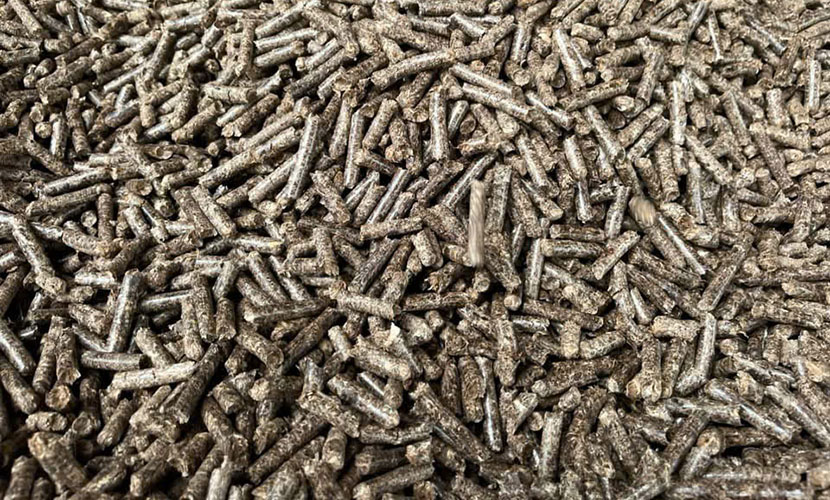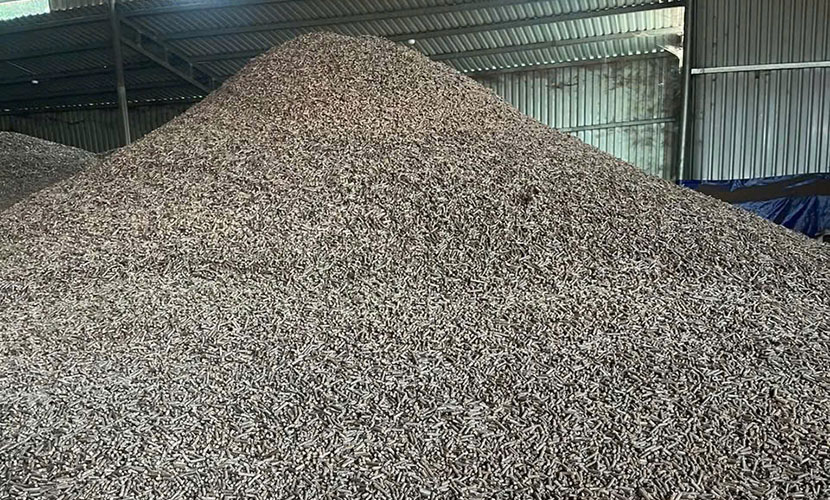
Vietnam’s pellet exports are at risk of stagnation due to tightening policies from Japan and unstable prices from South Korea. In the meanwhile, domestic input materials remain inconsistent.
Vietnam’s pellet exports reached more than six million tons in 2024, with a total value of $805 million. It marked a nearly 30% increase in volume and an 18.5% increase in value compared to the previous year. Japan and South Korea accounted for 95% of total exports, with Japan taking 60% and South Korea 34%.
However, entering the second quarter of 2025, the wood pellet exports have begun to feel the squeeze. The reasons were from both international policy changes and unresolved internal weaknesses.

Vietnamese pellet exports
The pressure started in February 2025, when Japan announced it would halt acceptance of new biomass energy projects from 2026. While already-approved projects will continue to receive support, the move limits future expansion of Vietnamese pellet exports to Japan.
In 2024, Vietnam’s pellet exports to Japan did not grow significantly compared to 2023. It was due to explosions and fire incidents at thermal power plants using imported pellets. Japan also warned that Vietnamese pellets contained contaminants such as plastic bags, metal pieces, and chemical residues. They were main factors which damaged equipment and increased fire risks.
Many Vietnamese companies of wood pellet exports have attempted to address these issues. Therefore, they have removed tree skins during pellet pressing to reduce chemical residues. However, higher input costs have made the products more expensive, reducing competitiveness amidst falling export prices.
In contrast to Japan, South Korea saw a significant increase in pellet prices in the second quarter. Accordingly, the export price has risen from below $100/MT last year to over $109/MT. However, this price recovery was largely temporary due to the shortage of local raw material supply.
Quality of Vietnamese pellets is lower than those from other competitors in South Korea. Several Vietnamese pellet companies have even dumped selling prices to win contracts. As a result, it draged down overall market prices, even below production costs.
According to experts, Vietnamese pellet factories depend heavily on by-products from the wood processing industry. As a result, input supply is unstable, especially during the rainy season or when wood furniture exports decline.
Notably, some producers also use tropical natural wood imported from Africa, which raises concerns over legality and sustainability. These materials often fail to meet international certification standards, which are becoming essential in developed markets.

Vietnamese pellet factory
Several provinces in Vietnam have expanded forest areas with certification. However, high production costs and weak supply chain linkages make it difficult for businesses to maintain the competitiveness.
Currently, Vietnam lacks clear incentive policies for biomass electricity, unlike past support for solar and wind power. Meanwhile, low industrial electricity prices make it hard for pellets to compete in the domestic market.
To address these challenges, experts recommend developing an ecosystem that links wood processing and pellet production companies. This linkage aims to maximize the use of plantation timber. Some pilot models connecting businesses with forest-growing households have started, but they remain small-scale and scattered.
Furthermore, the domestic market holds great untapped potential but is underdeveloped due to the lack of supportive policies. Currently, pellets are only used in a limited number of factories in food, textile, and leather sectors.
Experts propose a separate incentive mechanism for biomass power, similar to what was applied to solar and wind power in the past. This is a key condition for the sustainable development of wood pellets in Vietnam. As a result, it reduces dependency on exports and contributes to the country’s net-zero emission goals.
In the context of Vietnam’s commitment to Net Zero, wood pellets can become an important renewable energy solution. However, without a domestic market strategy and higher quality standards, Vietnamese pellets risk losing their competitive edge, even at home.
Vietnamese source: https://nongnghiepmoitruong.vn/xuat-khau-vien-nen-viet-nam-gap-luc-can-kep-d760879.html
